Magnesium is one of the most prevalent minerals in our bodies, playing a crucial role in over 600 metabolic processes. This includes functions like energy production, protein formation, and blood pressure regulation.
There are various forms of magnesium in supplements, each with its unique properties and potential benefits. For instance, studies suggest that magnesium taurate might help in reducing blood pressure, while magnesium citrate can be beneficial for constipation relief. Choosing and using the right magnesium supplement can effectively boost its levels in the body, aiding in improving associated health conditions. This article will recommend six magnesium supplements tailored for different health issues and delve into the forms of magnesium they contain and the related scientific research.
- Life Extension: High-Dose Magnesium Supplement
- Nested Naturals: Easing Mental Anxiety
- MegaFood: Relieving Night Leg Cramps
- Pure Encapsulations: Easing Constipation
- Douglas Laboratories: Relieving Frequent Migraines
- Thorne: Magnesium Powder for Athletes
- Recommended Dietary Allowance (RDA) for Magnesium
- More Forms and Research on Magnesium
- 10 Magnesium-Rich Foods
Life Extension: High-Dose Magnesium Supplement
Life Extension’s magnesium capsules are designed to help adults meet their daily magnesium needs more effectively. Just one capsule a day can fulfill magnesium requirements. The magnesium in Life Extension capsules comes in various forms, including magnesium oxide, magnesium citrate, and magnesium succinate. The manufacturer claims this blend promotes better absorption and utilization in the body.
It’s essential to note that each capsule of this supplement contains 500mg of magnesium, which is significantly higher than the daily recommended intake. Because of this high dose, it’s recommended to consult with a doctor before starting.
Life Extension Magnesium Capsules: 500mg/100 capsules
* Prices are as of the time of writing
With over 40 years of experience in the industry, Life Extension prides itself on transparency and quality. All their products are produced in NSF CGMP registered facilities and come with an analysis certificate, allowing users to verify the product’s accuracy. This supplement is non-GMO, making it a solid choice for those looking for an affordable option.
Pros:
- Cost-effective.
- Comes with an analysis certificate for quality and accuracy.
- Produced in NSF CGMP registered facilities.
- Many user reviews highlight its notable efficacy in promoting digestion.
Cons:
- The magnesium content might be too high for some individuals.
- There’s limited publicly available information and research on the benefits of magnesium succinate.
- User reviews have mentioned a change in the product formula, with the new version no longer containing magnesium glycinate, which is considered a superior form of magnesium. This change is speculated to be a cost-cutting measure.
Magnesium Forms and Research:
Magnesium Citrate
Magnesium citrate is a form of magnesium bound with citric acid, a naturally occurring acid in citrus fruits that gives them their sour taste. It’s a common ingredient in magnesium supplements.
- According to a small-scale study involving 14 male participants, magnesium citrate is one of the most easily absorbed forms of magnesium by the body. This means its absorption rate in the digestive tract is better than other magnesium supplements. [1] Trusted Website PubMed is a data base from US National Institutes of Health. It’s a trusted source of health and medical information. Open the link →
People often take magnesium citrate orally to boost their magnesium levels. Moreover, due to its natural laxative effects, it is sometimes taken in higher doses to treat constipation.
Magnesium citrate is occasionally promoted as a relaxant, claimed to help with symptoms related to depression and anxiety. However, these claims require more scientific research for validation. [2] Trusted Website NCBI, US National Center for Biotechnology Information, is a trusted source of biotechnology and biomedicine information. Open the link →
Magnesium Oxide
Magnesium oxide is a salt formed by combining magnesium and oxygen, typically sold in powder or capsule form. Though it’s a form of magnesium, research has shown its absorption rate in the digestive tract is relatively poor, making it not the top pick for preventing or treating magnesium deficiency. [3] Trusted Website NCBI, US National Center for Biotechnology Information, is a trusted source of biotechnology and biomedicine information. Open the link →
However, magnesium oxide’s effectiveness in alleviating digestive discomfort is widely recognized. It’s commonly used to relieve symptoms like heartburn, indigestion, and constipation. Additionally, some try it for treating and preventing migraines, although more research is needed to establish if a magnesium deficiency directly causes migraines. [4] Trusted Website NCBI, US National Center for Biotechnology Information, is a trusted source of biotechnology and biomedicine information. Open the link →
Studies suggest that during a migraine attack, the brain’s magnesium levels might be low, making magnesium intake a potential preventative measure.
- The American Migraine Foundation Recommends a daily intake of 400-500mg of magnesium oxide to prevent migraines.
- Some research indicates that when individuals take high doses of magnesium daily, upwards of 600mg, and continue for 3-4 months, its effectiveness as a migraine preventive may increase. [5] Trusted Website Wiley.com is a U.S. publishing company that specializes in academic content with 200 years of history. Open the link → Worth noting, magnesium intake might be even more effective for those with migraines accompanied by auras or visual disturbances.
Still, high doses of magnesium can lead to adverse reactions.
Magnesium Succinate
Magnesium succinate is a magnesium salt of succinic acid, a functional food nutritional component and can be used as a food supplement. There’s limited information on this type of magnesium, and no evident research on its health benefits.
Nested Naturals: Easing Mental Anxiety
The active ingredient in Nested Naturals magnesium supplement is magnesium bisglycinate, known to have high bioavailability. Additionally, this product doesn’t contain calcium, helping to ensure better absorption of magnesium. It’s also fully vegan, meaning no animal ingredients are used, and is GMO-free, offering a dependable option for those seeking natural products.
Worth mentioning, many reviews point out that this product doesn’t induce any laxative effects, a significant plus. Diarrhea is a common side effect of many magnesium supplements.
Nested Naturals Bisglycinate Magnesium Capsules: 100mg/120 capsules
Suggested daily dose: 2 capsules.
Magnesium can help improve sleep quality, and its calming effect on the nervous system might also help ease anxiety. While further research is needed, a review of 18 human studies suggests that magnesium may reduce symptoms of anxiety. [6] Trusted Website NCBI, US National Center for Biotechnology Information, is a trusted source of biotechnology and biomedicine information. Open the link →
Pros:
- No laxative effect.
- Easily absorbed, high bioavailability.
- No calcium content, promoting absorption.
- Vegan, non-GMO.
- Third-party tested.
Cons:
- Price might be higher than similar products.
Magnesium Glycinate and Research
Magnesium Glycinate is a compound formed by combining basic magnesium with the amino acid glycine. This amino acid plays a role in protein synthesis in the body and is also widely present in foods like fish, meat, dairy products, and legumes.
- Animal studies suggest that glycine itself might help improve sleep quality and potentially have therapeutic effects on some inflammatory conditions such as heart disease and diabetes. However, more research is needed to confirm these findings. [7] Trusted Website PubMed is a data base from US National Institutes of Health. It’s a trusted source of health and medical information. Open the link →
- Due to its good absorption and calming properties, Magnesium Glycinate is thought to aid in reducing issues like anxiety, depression, stress, and insomnia. Research indicates that taking an appropriate amount of Magnesium Glycinate daily can significantly improve symptoms of depression, anxiety, and memory decline. The exact mechanism behind this effect isn’t fully understood. One hypothesis is that people with low magnesium levels might be more affected by mental health issues. However, blood magnesium tests haven’t consistently shown this correlation. Studies suggest that symptoms might start appearing before a magnesium deficiency is detected through blood tests. [8] Trusted Website NCBI, US National Center for Biotechnology Information, is a trusted source of biotechnology and biomedicine information. Open the link →
Another notable feature of Magnesium Glycinate is its digestive system friendliness. Compared to other magnesium supplements, Magnesium Glycinate rarely causes digestive discomfort. It often comes in capsule form, but it’s also available as a powder, catering to those who dislike swallowing pills.
MegaFood: Relieving Night Leg Cramps
Each tablet of MegaFood Fermented Magnesium Glycinate contains 50mg of magnesium, which is 12% of the recommended daily intake. Additionally, each tablet includes 50mg of organic spinach, a natural source of magnesium. MegaFood’s magnesium supplement has been tested for various pesticides and herbicides. The company is also certified as a B Corp by the nonprofit organization B Lab, indicating that it meets certain standards for accountability, transparency, social and environmental performance. Furthermore, it’s certified as non-GMO, vegan, and gluten-free.
MegaFood Fermented Magnesium Glycinate Capsules 50mg/50 count
Recommended for adults to take 1 capsule daily, with or without food.
Available for $19.99 at Megafood.com
Also available at iHerb.
*Also available in a 90-count package, and the official website offers subscription options.
Night leg cramps are a common issue for many people. Research suggests that magnesium contributes to muscle relaxation, and when magnesium intake is insufficient, muscle cramps might occur. While current research findings aren’t entirely conclusive, some individuals have reported relief from cramps after supplementing with magnesium. [9] Trusted Website NCBI, US National Center for Biotechnology Information, is a trusted source of biotechnology and biomedicine information. Open the link →
Pros:
- B Corp certification.
- Tested for pesticides and herbicides.
- Non-GMO.
- Vegan.
- Gluten-free.
Cons:
- Purity or accuracy not confirmed through third-party testing.
Pure Encapsulations: Easing Constipation
The magnesium citrate supplement provided by Pure Encapsulations comes in capsule form designed for adults, with each capsule containing 150mg of magnesium citrate, approximately 36% of the recommended daily intake.
Magnesium citrate can gently help soften stools. The common powdered form of magnesium citrate, when mixed with water, aids in promoting regular bowel movements, regulating the digestive system without the concern of sudden urgent needs to use the restroom.
Recommended 1 capsule 1-4 times daily.
Also available in a 180-count package.
This product is manufactured in facilities registered with NSF and certified with CGMP. Furthermore, it’s vegan, non-GMO, and has received gluten-free certification from the Gluten-Free Certification Organization.
It’s advisable to take it during meals, 1-4 capsules per day, but the specific dosage should be determined based on the advice of a doctor or nutritionist. While most people might find it helpful for their digestive system, some individuals might experience side effects like abdominal pain or diarrhea. Consulting a medical expert before considering supplementation is recommended.
Pros:
- Reasonable price.
- Registered NSF and certified CGMP.
- Certified gluten-free.
- Non-GMO.
- Vegan.
Cons:
- May cause side effects like diarrhea and abdominal pain.
Pure Encapsulations not only offers solid forms of magnesium supplements but also provides a liquid magnesium citrate supplement option for those who dislike or have difficulty swallowing pills. The liquid magnesium citrate is free from artificial sweeteners and colors, enhanced with natural fruit flavors, apple juice concentrate, and stevia extract for better taste. However, note that this liquid supplement contains a higher amount of vitamin B6, so it’s not recommended to take it alongside other supplements containing vitamin B6.
Recommended 1 teaspoon (5 mL) daily.
Douglas Laboratories: Relieving Frequent Migraines
If you’re seeking a supplement to help manage frequent migraines, consider Douglas Laboratories’ Magnesium Oxide capsules. Research indicates that magnesium might aid in preventing and managing migraines. While more research is needed, magnesium oxide is believed to be one form effective in alleviating migraines. [10] Trusted Website PubMed is a data base from US National Institutes of Health. It’s a trusted source of health and medical information. Open the link → Douglas Laboratories’ products are manufactured in NSF registered GMP facilities and are also non-GMO verified.
It’s worth noting that some reviews mention the potential for diarrhea with this supplement.
300mg (from 500mg magnesium oxide)/250 count
Recommended for adults to take 1 capsule daily.
Pros:
- Manufactured in NSF registered GMP facilities.
- Third-party tested.
- Non-GMO.
- Affordable price.
Cons:
- According to some reviews, there might be a mild diarrhea effect.
Thorne: Magnesium Powder for Athletes
Thorne’s Magnesium Bisglycinate Powder stands out as a unique option in the market due to its high quality, pure ingredients, and specific certification for competitive athletes. Thorne’s Magnesium Bisglycinate Powder is NSF Certified for Sport, ensuring it’s free from substances prohibited by most major sports organizations, providing athletes with a safe and effective choice.
Another feature is its relatively simple ingredient list. Thorne’s Magnesium Bisglycinate Powder uses monk fruit concentrate as its sole natural flavoring, avoiding added sugars, thickeners, and artificial components. User reviews commonly highlight that the supplement tastes good and is easy to take.
Thorne Magnesium Bisglycinate Powder 6.5 oz (187 g)
Recommended to mix 1 scoop with 8 ounces of water, once daily.
Pros:
- NSF Certified for Sport.
- Manufactured in facilities meeting NSF and TGA standards.
- Well-reviewed for taste.
- Highly absorbable form of magnesium.
- No artificial ingredients.
Cons:
- Higher price.
Recommended Dietary Allowance (RDA) for Magnesium
The table below provides reference values for the Recommended Dietary Allowance (RDA) of magnesium.
Recommended Dietary Allowance (RDA) for Magnesium
Unit: milligrams (mg)
National Institutes of Health (NIH)
| Age | Males | Females | Pregnant | Lactating |
|---|---|---|---|---|
| 0-6 months | 30 (AI) | 30 (AI) | – | – |
| 7-12 months | 75 (AI) | 75 (AI) | – | – |
| 1-3 years | 80 | 80 | – | – |
| 4-8 years | 130 | 130 | – | – |
| 9-13 years | 240 | 240 | – | – |
| 14-18 years | 410 | 360 | 400 | 360 |
| 19-30 years | 400 | 310 | 350 | 310 |
| 31-50 years | 420 | 320 | 360 | 320 |
| 51 years and older | 420 | 320 | – | – |
More Forms and Research on Magnesium
In addition to the magnesium forms mentioned above like magnesium oxide, magnesium citrate, magnesium malate, and magnesium glycinate, there are more forms of magnesium. Here are 7 additional forms of magnesium along with relevant scientific research for your reference when choosing magnesium supplements.
Magnesium Chloride
Magnesium chloride is a compound formed by the combination of magnesium and chloride. Chloride, an unstable element that can combine with various elements, forms this specific salt with magnesium. Magnesium chloride can be used as a means of magnesium supplementation in certain cases and is also found in topical products to provide relief for sore muscles.
Magnesium chloride is highly absorbable in the digestive tract. When the body lacks necessary magnesium, magnesium chloride can effectively serve as a supplement to help replenish the required amount. [11] Trusted Website NCBI, US National Center for Biotechnology Information, is a trusted source of biotechnology and biomedicine information. Open the link →
Apart from oral use, magnesium chloride is also found in many topically applied products like lotions and ointments. Using skincare products containing magnesium chloride can effectively soothe and relax sore muscles, but there is currently a lack of direct evidence suggesting these products can elevate magnesium levels in the body. [12] Trusted Website ScienceDirect.com is a trusted database of scientific and medical publications. Open the link →
Magnesium Lactate
Magnesium lactate is a compound formed by the combination of magnesium and lactic acid. Lactic acid is a naturally occurring acid in muscles and blood cells and is widely used as a preservative and flavor enhancer in foods. Magnesium lactate is primarily used as a food additive to adjust the acidity of foods and beverages and enhance their nutritional value. While it may not be as popular as a dietary supplement, it doesn’t mean it lacks advantages.
Magnesium lactate is easily absorbed by the digestive system and is gentler on the gastrointestinal tract. This characteristic makes magnesium lactate an ideal choice for individuals who need long-term or high-dose magnesium intake or are sensitive to other magnesium supplementation methods. In a study involving 28 patients with a rare disease requiring significant daily magnesium intake, the group using magnesium lactate extended-release tablets reported significantly fewer digestive system side effects compared to the control group. [13] Trusted Website NCBI, US National Center for Biotechnology Information, is a trusted source of biotechnology and biomedicine information. Open the link →
Additionally, some studies suggest that magnesium lactate might have some effect in relieving stress and anxiety, although further scientific research is needed to confirm this. [14] Trusted Website NCBI, US National Center for Biotechnology Information, is a trusted source of biotechnology and biomedicine information. Open the link →
Magnesium L-threonate
Magnesium L-threonate is a compound formed by the combination of magnesium and L-threonate, a byproduct of vitamin C metabolism. Among various forms of magnesium, magnesium L-threonate is considered to have good absorbability.
Animal studies suggest that magnesium L-threonate might be the most effective type for increasing magnesium concentrations in brain cells. [15] Trusted Website NCBI, US National Center for Biotechnology Information, is a trusted source of biotechnology and biomedicine information. Open the link → This finding has made it a subject of interest in exploring brain health, especially in searching for potential solutions for managing conditions such as depression, Alzheimer’s disease, and age-related memory loss. [16] Trusted Website NCBI, US National Center for Biotechnology Information, is a trusted source of biotechnology and biomedicine information. Open the link →
Current evidence is not sufficient to provide definitive support for its clinical applications.
Magnesium Malate
Magnesium malate is a compound containing magnesium and malic acid. Malic acid is a natural acid found in fruits and wine and is commonly used as a food flavoring and acidulant.
Research shows that magnesium malate is highly efficient in absorption in the human digestive system, making it an ideal choice for those who need to supplement their magnesium levels. Compared to other forms of magnesium, magnesium malate is gentler for many individuals and is less likely to have a laxative effect. [17] Trusted Website PubMed is a data base from US National Institutes of Health. It’s a trusted source of health and medical information. Open the link →
Magnesium malate is recommended in some cases for relieving fibromyalgia and chronic fatigue syndrome-related symptoms. While there is some preliminary evidence for its effectiveness, more in-depth and high-quality research is needed to further confirm its actual effects. [18] Trusted Website NCBI, US National Center for Biotechnology Information, is a trusted source of biotechnology and biomedicine information. Open the link →
Magnesium Orotate
Magnesium orotate is a compound containing magnesium and orotic acid. Orotic acid plays an important role in the construction of DNA. This specific form of magnesium is easily absorbed by the body and doesn’t have the strong laxative effect like some other forms of magnesium.
Preliminary research suggests that magnesium orotate might be beneficial for heart health, primarily due to the role of orotic acid in energy production pathways in cardiac and vascular tissues. This has made magnesium orotate popular among some athletes and fitness enthusiasts. [19] Trusted Website NCBI, US National Center for Biotechnology Information, is a trusted source of biotechnology and biomedicine information. Open the link →
A study from 2009 found that magnesium orotate supplements were significantly better than a placebo in symptom management and survival rates among 79 patients with severe congestive heart failure. [20] Trusted Website PubMed is a data base from US National Institutes of Health. It’s a trusted source of health and medical information. Open the link →
Nonetheless, more comprehensive research is needed to further validate the overall benefits of magnesium orotate.
Magnesium Sulfate
Magnesium sulfate is a compound formed by the combination of magnesium, sulfur, and oxygen, and it appears as a white substance with a texture similar to table salt. In medical contexts, it’s more commonly known as Epsom salt.
This salt serves specific purposes in medicine. For example, when dissolved, it can serve as a treatment for constipation, although it’s not known for its pleasant taste, and it’s important to note that excessive or frequent use might have negative health effects. [21] Trusted Website NCBI, US National Center for Biotechnology Information, is a trusted source of biotechnology and biomedicine information. Open the link →
In everyday life, magnesium sulfate is often dissolved in bathwater and is believed to help relieve muscle pain and stress. It’s also added to certain skincare products. However, it’s worth noting that there isn’t enough scientific evidence to conclusively support whether magnesium sulfate can effectively be absorbed through the skin to achieve potential benefits. [22] Trusted Website NCBI, US National Center for Biotechnology Information, is a trusted source of biotechnology and biomedicine information. Open the link →
Magnesium Taurate
Magnesium taurate is a compound formed by the combination of magnesium and the amino acid taurine.
Research indicates that adequate intake of both taurine and magnesium may play a key role in maintaining healthy blood sugar levels. This suggests that magnesium taurate might provide some support for blood sugar management. [23] Trusted Website NCBI, US National Center for Biotechnology Information, is a trusted source of biotechnology and biomedicine information. Open the link →
Magnesium in conjunction with taurine is also believed to support healthy blood pressure levels. A 2018 study on rats found that magnesium taurate could lower blood pressure in hypertensive rats, providing clues to potential cardiovascular benefits. [24] Trusted Website NCBI, US National Center for Biotechnology Information, is a trusted source of biotechnology and biomedicine information. Open the link →
These are preliminary studies, and more research involving humans is needed to determine the efficacy of magnesium taurate.
10 Magnesium-Rich Foods
- Seeds: Seeds, especially pumpkin, flax, and chia seeds, are rich in magnesium. For example, 1 ounce of pumpkin seeds contains 168 milligrams of magnesium. They are also high in iron, omega-3 fatty acids, and antioxidants, contributing to heart health and protection against harmful free radicals.
- Dark Chocolate: Dark chocolate is rich in magnesium, with 65 milligrams per ounce. It’s also high in iron, copper, manganese, and antioxidants, supporting heart health and neutralizing harmful free radicals.
- Avocado: Avocado is a nutrient-dense fruit, containing 58 milligrams of magnesium in a medium-sized avocado. It’s rich in heart-healthy monounsaturated fats. Avocados are also high in potassium, B vitamins, and fiber, aiding in reducing inflammation and improving cholesterol levels.
- Nuts: Various nuts like almonds, cashews, and Brazil nuts are rich in magnesium (e.g., 1 ounce of cashews contains 83 milligrams of magnesium). Nuts are also sources of fiber, monounsaturated fats, and other essential nutrients, contributing to blood sugar control and heart health.
- Legumes: Legumes like lentils, black beans, and chickpeas are magnesium-rich. 1 cup of cooked black beans contains 120 milligrams of magnesium, covering 29% of the daily requirement. They are also high in potassium and iron, serving as primary protein sources for vegetarians and aiding in lowering cholesterol levels, improving blood sugar control, and reducing the risk of heart disease.
- Tofu: Tofu, made from soybeans, contains 35 milligrams of magnesium per 100 grams, covering 8% of the daily requirement. It’s a staple in vegetarian diets, providing rich protein, calcium, iron, manganese, and selenium. Research also suggests that consuming tofu and other soy products may protect arterial cell linings and could be associated with reduced stomach cancer risk.
- Whole Grains: Whole grains like buckwheat provide magnesium (e.g., 1 cup of cooked buckwheat contains 86 milligrams), along with other nutrients such as B vitamins and fiber. Research shows that whole grains can reduce inflammation and lower risk factors for heart disease.
- Fatty Fish: Fatty fish like salmon, mackerel, and trout provide magnesium (e.g., 3.5 ounces of salmon contains 30 milligrams), along with high-quality protein, omega-3 fatty acids, and other nutrients. Regular consumption of fatty fish is associated with reduced risks of chronic diseases, including heart disease.
- Bananas: Bananas are among the most popular fruits worldwide, containing magnesium (e.g., a large banana contains 37 milligrams) and potassium as its primary component. They also contain vitamin C, vitamin B6, manganese, and fiber, contributing to heart health and blood sugar levels.
- Leafy Greens: Leafy greens such as spinach, kale, Swiss chard, collard greens, and mustard greens are rich in magnesium. For example, cooked spinach contains 158 milligrams of magnesium per cup, covering 37% of the daily requirement. They are also sources of iron, vitamins A, C, and K, as well as various nutrients that protect cells from damage and potentially lower cancer risk.
Disclosure: We are an Amazon Associate. Some links on this website are affiliate links, which means we may earn a commission or receive a referral fee when you sign up or make a purchase through those links.
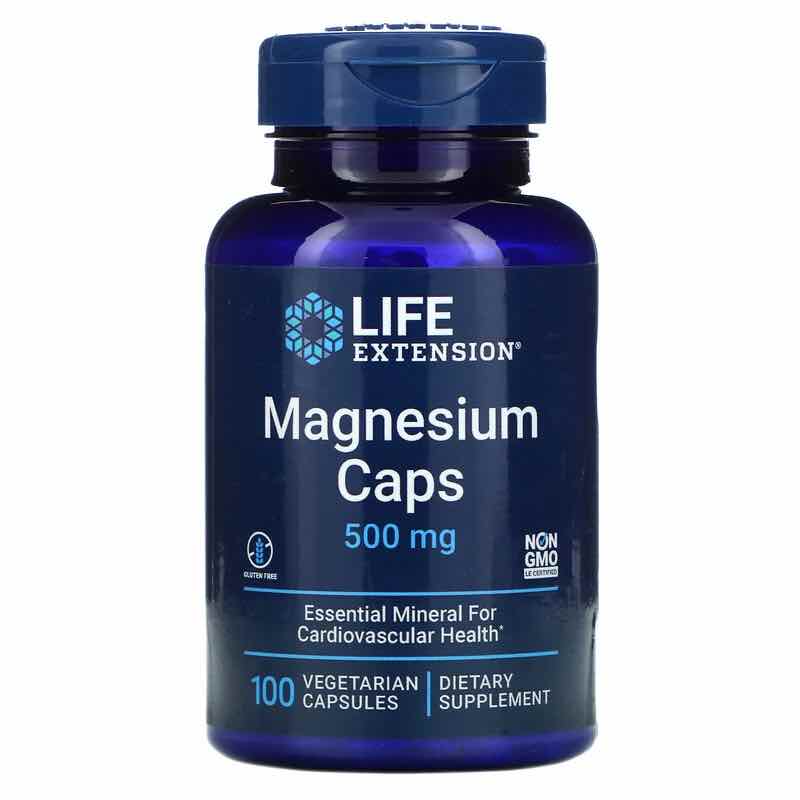
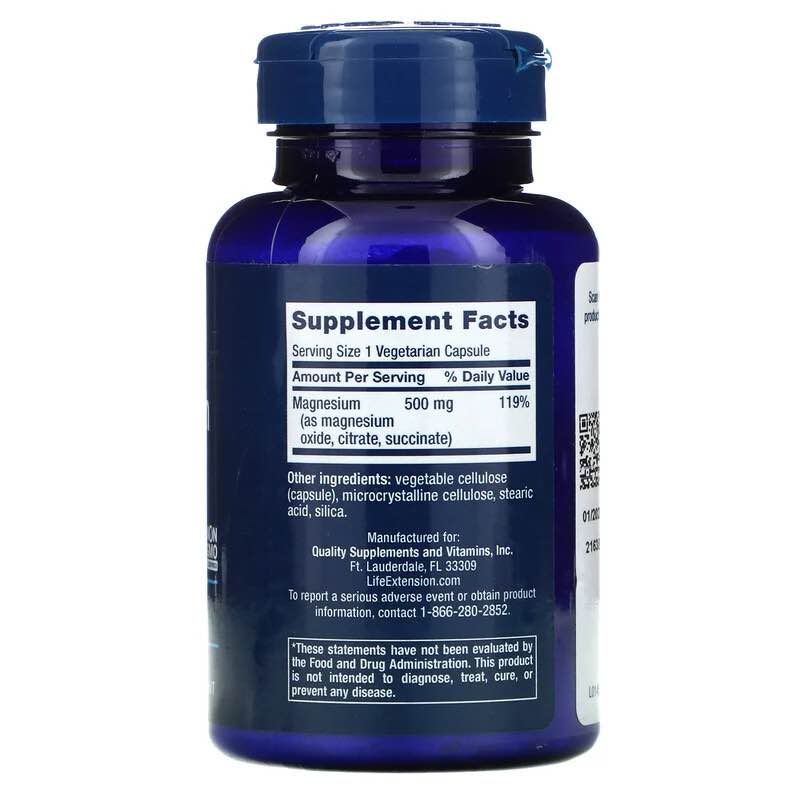
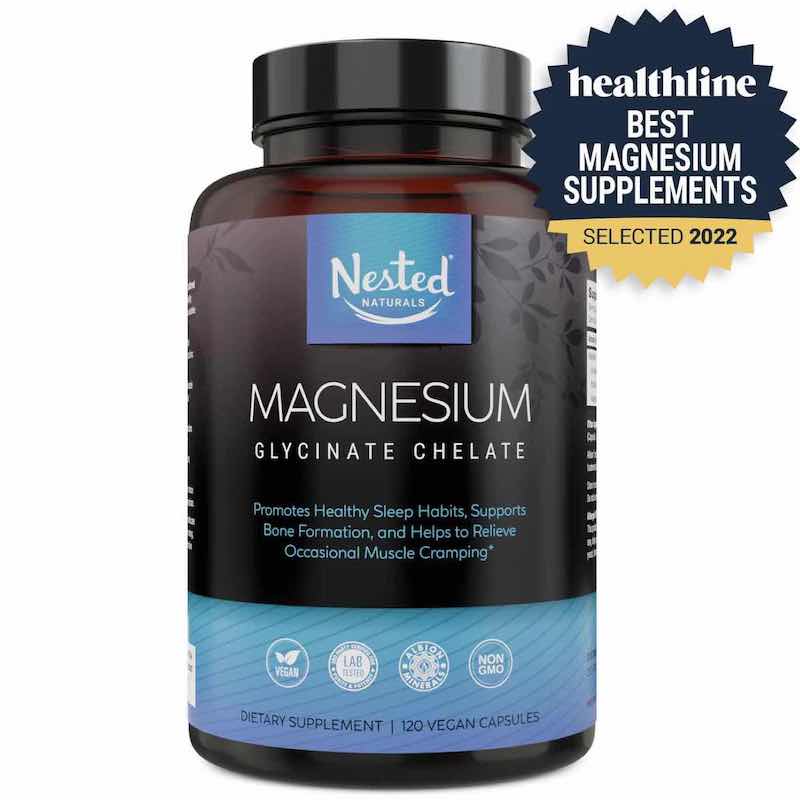
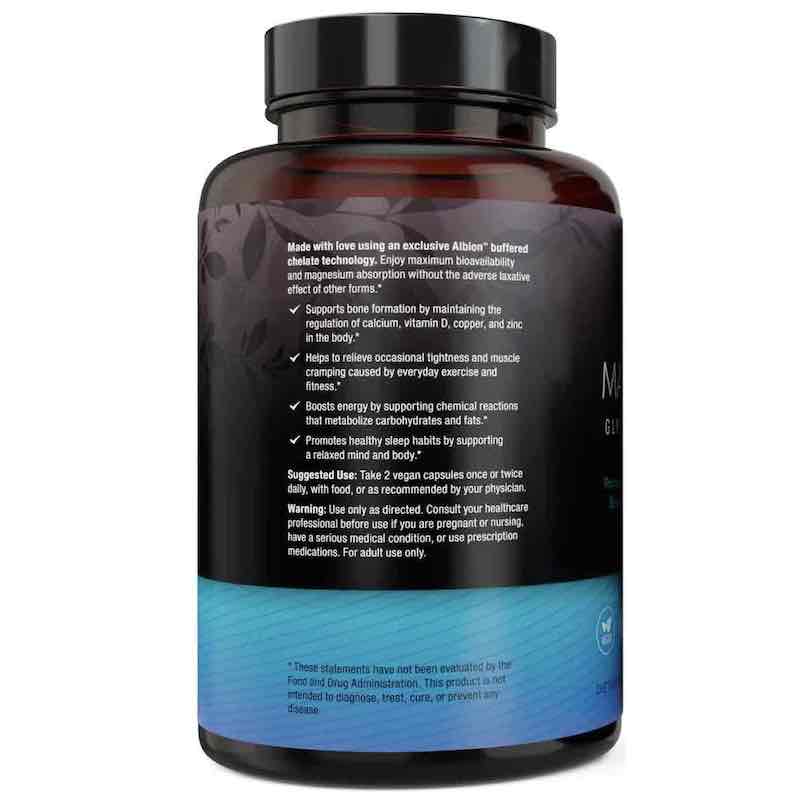
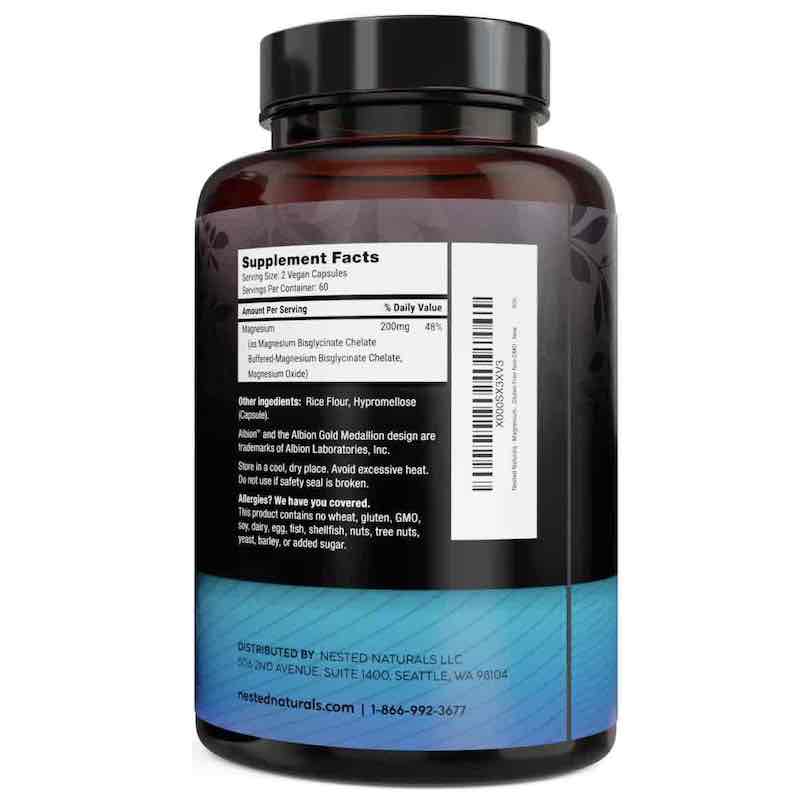
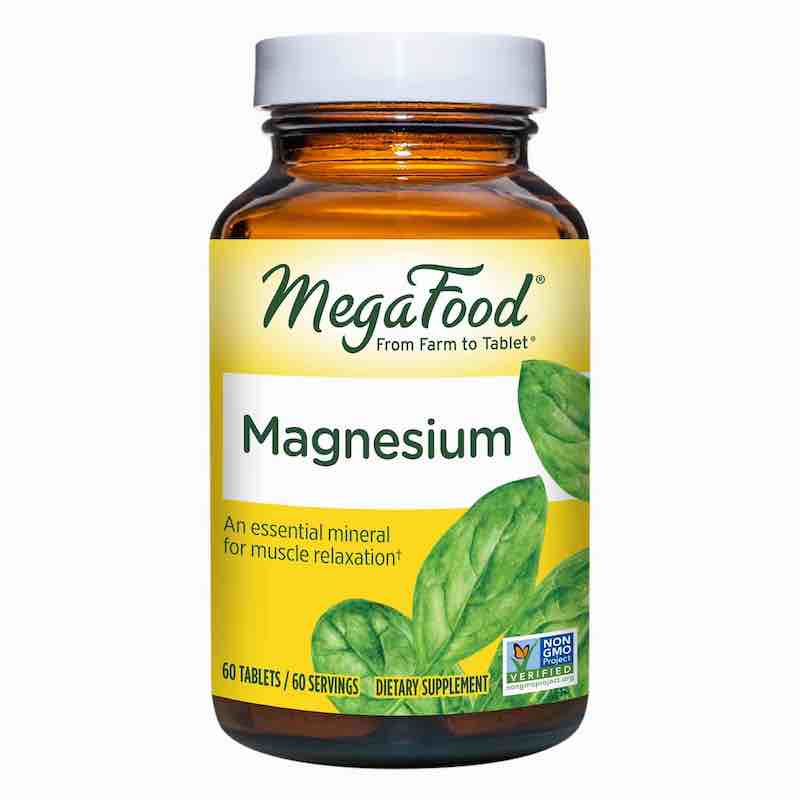




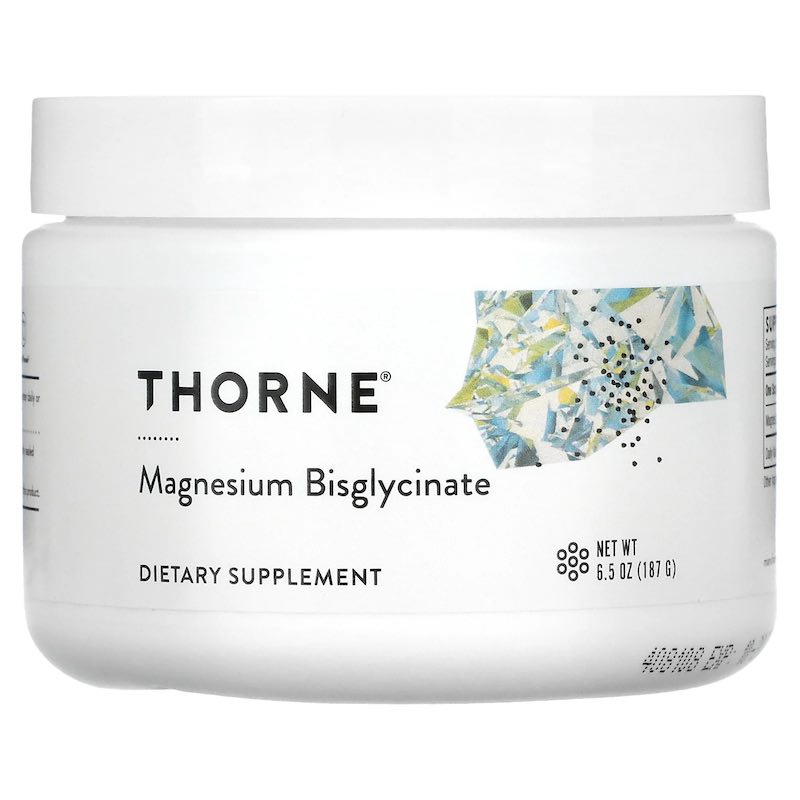
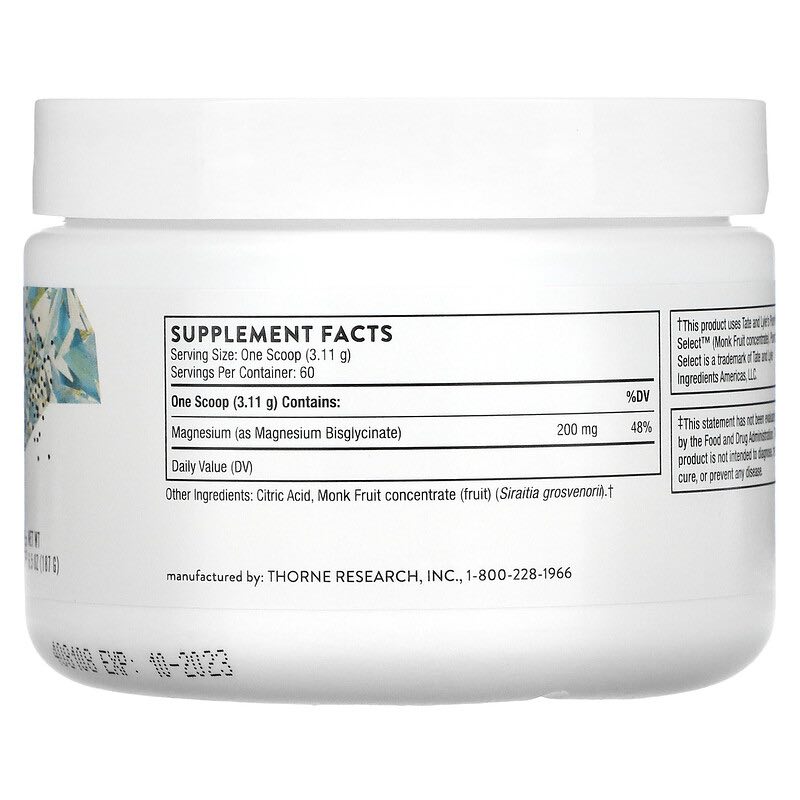











Leave a Reply